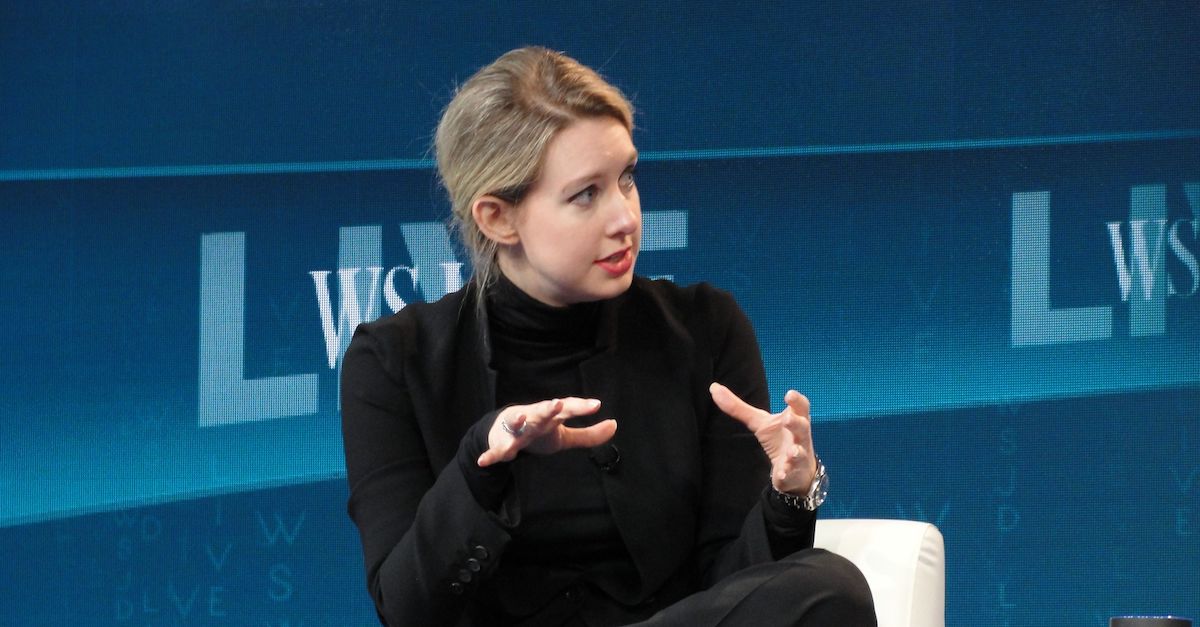
After lengthy deliberations, a federal jury convicted Theranos founder Elizabeth Holmes of roughly a quarter of the 12 conspiracy and wire fraud charges she initially faced at her trial. Holmes won a dismissal on one of the counts early in her trial, and jurors deadlocked on three of the counts, returning no verdict.
In July 2018, a grand jury indicted Holmes and her former chief operating officer and ex-boyfriend Ramesh “Sunny” Balwani on allegations that they defrauded investors of millions with false claims that their start-up Theranos would revolutionize blood testing using a few drops of blood in a so-called “nanotainer.”
Since founding Theranos in 2003, Holmes became what Forbes called the youngest female self-made billionaire and her company once valued $9 billion before it all came crashing down with an exposé by Wall Street Journal’s John Carreyrou: “Bad Blood: Secrets and Lies in a Silicon Valley Startup.” That tome later became an HBO documentary, and Holmes’s defense attorney argued that cascade of media coverage making her a poster child of fraud would prevent her from having a fair trial.
Holmes’s defense attorneys tried, and failed, to persuade a federal judge to delve into potential jurors’ media consumption into extraordinary detail. One of their proposed queries, ultimately dropped from the questionnaire, had asked whether jurors followed Carreyrou or the author of this Law&Crime report on social media.
Ultimately, Holmes had a jury that carefully scrutinized the evidence during seven days of deliberations, which began in December. The jury rendered their partial verdict on Monday.
As reported by Miles Cohen, a producer for ABC’s Good Morning America, jurors delivered a mixed outcome for Holmes.
The verdict appears to show that jurors believed the government’s allegations as to Theranos investors—but not as to patients. Holmes was convicted of conspiracy and wire fraud charges on the former, but not on the latter, according to ABC News.
Even with those acquittals, Holmes could be facing heavy sentencing calculations. She was convicted of three counts of wire fraud, a statute with a 20-year maximum penalty. The conspiracy count is a maximum five-year penalty. If her sentencing judge ruled that the counts should run concurrently, they would cap off at 20 years.
But former federal prosecutor Mitchell Epner, who is now of counsel with the firm Rottenberg Lipman Rich PC, told Law&Crime in a phone interview that there is reason to believe that Holmes’ sentencing guidelines could effectively recommend a life sentence for her. Those guidelines, intended to standardize punishment and reduce sentencing disparities in federal court, calculate recommendations for categories of offenses. Any offense level at or over 43 results in a life sentence calculation.
Epner told Law&Crime that there is reason to believe Holmes could reach this outcome, particularly because of the $144 million in loss under the counts of conviction. If there are more than 10 victims, that would also boost her number. Other points could be added for running a publicly traded company and acting as an organizer or leader of it. Another point of contention could be whether Holmes engaged in trial perjury.
“Judges do not like trial perjury, and she cried ostensibly with tears in a way that, if the judge concludes she lied, he will have to conclude that she was a brazen liar—and a failed actress,” Epner added.
U.S. District Judge Edward Davila, who presided over the trial, will be her sentencing judge.
Holmes’s lawyer Kevin Downey did not immediately respond to an email requesting comment.
(Photo by GLENN CHAPMAN/AFP via Getty Images)